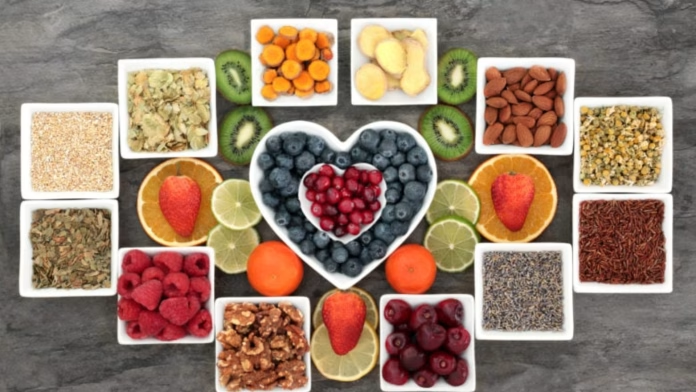In the pursuit of a healthy lifestyle, we often turn to foods that are marketed as “healthy” or “fit.” However, not all foods labeled as such live up to their claims. In fact, many of these seemingly healthy options can actually sabotage your diet and hinder your progress. In this article, we will uncover 10 sneaky “healthy” foods that are actually unhealthy. By being aware of these culprits, you can make more informed choices and stay on track with your health and fitness goals.
- Energy and Protein Bars: Energy and protein bars are often touted as convenient, on-the-go snacks packed with nutrients. However, many of these bars are loaded with sugar and have nutritional profiles more similar to candy bars than healthy snacks. When choosing bars, pay close attention to the amount of sugar, calories, and ingredients. Opt for healthier alternatives that prioritize natural ingredients and minimal added sugars.
- Diet Soda: Diet soda is a popular choice for those looking to cut down on calories and sugar. However, studies have linked diet soda consumption to negative health effects. The artificial sweeteners in diet soda can trick your body into thinking you’re consuming real food, leading to an insulin spike and potential weight gain. Additionally, research suggests that soda consumption, including diet soda, increases the risk of heart attack and stroke. Choose water or unsweetened beverages as healthier alternatives.
- Flavored Instant Oatmeal: While oatmeal is often regarded as a healthy breakfast choice, flavored instant oatmeal can be deceiving. These single-serving packets are typically loaded with added sugar and unnecessary calories. Instead, opt for plain instant oatmeal and add your own flavor with fruits and spices like cinnamon and nutmeg. For even better nutrition, consider steel-cut oats, which provide long-lasting energy and additional health benefits.
- Bran Muffins: Bran muffins may sound like a healthy choice due to their association with bran, a fiber-rich outer layer of grains. However, store-bought bran muffins often contain excessive amounts of sugar, sodium, and refined flour. To enjoy a healthier alternative, consider baking your own bran muffins at home, where you can control the ingredients and portion sizes.
- Packaged Turkey: Turkey is a lean protein source often included in sandwiches and salads. However, packaged turkey from the store can be high in sodium and preservatives. When purchasing packaged turkey, choose brands with lower sodium content (aim for less than 350mg per 2 oz serving) or consider cooking your own turkey for a healthier option.
- Dried Fruit: Dried fruit may seem like a nutritious snack, but it can be packed with added sugars and preservatives. Sulfur dioxide is often used to preserve the freshness of dried fruit, and additional sugar is added to enhance the flavor. While dried fruit still provides essential vitamins, minerals, and fiber, it’s easy to over consume due to its concentrated sweetness. Enjoy dried fruit in moderation and opt for fresh fruit as a healthier choice.
- Wraps: Wraps are often perceived as a healthier alternative to traditional bread, but this isn’t always the case. Restaurant or pre-made wraps can be calorie-dense, and the whole grain or vegetable wraps may not contain as many vegetables or whole grains as you might expect. Additionally, the fillings in pre-made wraps may be less customizable, potentially leading to less healthy choices. Consider making your own wraps with whole grain options and load them up with fresh vegetables and lean proteins.
- Pretzels: Pretzels are a popular snack because they are fat-free. However, they lack significant nutritional value and are made with white flour, which quickly converts to sugar in the body. This can lead to blood sugar spikes and increased hunger levels. Instead of pretzels, opt for snacks that are high in protein and fiber to keep you satiated for longer.
- Sports Drinks: Sports drinks are often marketed as essential for hydration and electrolyte replenishment. However, they are essentially sugar water with artificial food coloring. The electrolytes found in sports drinks can be easily obtained from natural sources like coconut water and bananas. Reserve sports drinks for intense physical activity, and opt for healthier alternatives for everyday hydration.
- Agave Nectar: Agave nectar has gained popularity as a natural sweetener. While it is low on the glycemic index, meaning it has a lesser impact on blood sugar levels, it is also high in fructose. Excessive consumption of fructose can have negative effects on metabolic health. Use agave nectar sparingly and be mindful of your overall sugar intake.
It’s essential to be cautious and informed when it comes to selecting “healthy” foods. The 10 items mentioned in this article may seem like smart choices but can actually be detrimental to your diet and overall health. By understanding their potential pitfalls, you can make more informed decisions and choose alternatives that truly align with your goals. Remember, reading labels, prioritizing whole foods, and minimizing added sugars are key steps toward maintaining a healthy and balanced diet.



